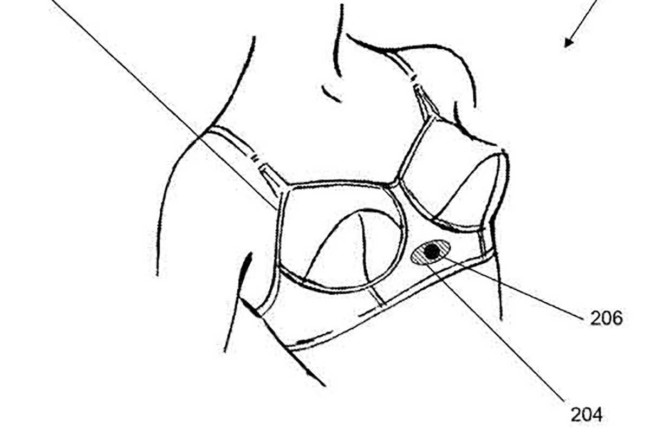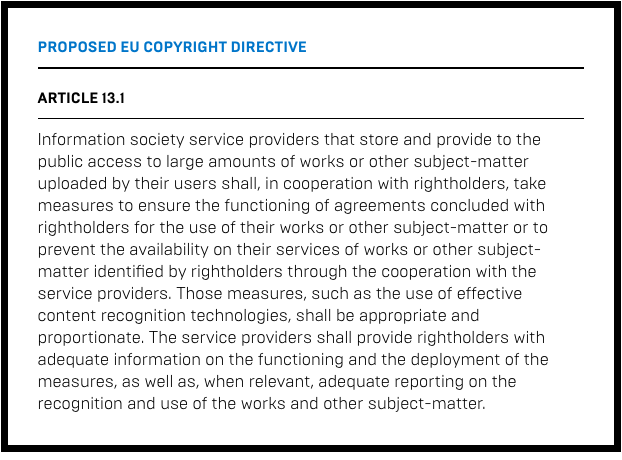Technology Category
Independent news, views, opinions and reviews on the latest gadgets, games, science, technology and research from Apple and more. It’s about the technologies that change the way we live, work, love and behave.
How to appear trustworthy
Do we trust others too much? Are we confident that the government is able to accomplish what it set out to accomplish, whatever that is (insert guess here and post it to Westminster). What about robots, do we trust them?In 2014, researchers at University of Wisconsin-Madison investigated what makes a humanoid robot seem more “alive.” They found that a firm, steady gaze was unsettling. Bots programmed to occasionally glance away and look around appeared more thoughtful and thus more trustworthy.
Sathnam Sanghera writes in the Times onheart surgeon Samer Nashef:
People have an instinctive inclination to venerate medical professionals, literally handing over their lives to them without question, when these people are as capable of error as anyone else. As Nashef explains at length in his excellent book The Naked Surgeon, patients operated on the day before a surgeon goes on holiday are twice as likely to die as those operated on the first day the surgeon returns from holiday; one surgeon can appear, statistically, to be a better surgeon than another although they have killed more patients, owing to a strange phenomenon called “category shift”; and choosing a surgeon with the lowest patient mortality rate could be a mistake because they could just be taking on fewer risky patients.
Nashef writes how a heart surgeon “day after day walks into an operating theatre, nonchalantly cracks open the chest, puts the patient on an artificial heart-lung machine, stops the heart, opens it, fixes it, starts it again, disconnects the patient from the heart-lung machine and expects that the heart will handle supporting life again”. We trust them.
You don’t need to study medicine for years or work in high finance to gain trust. You can cheat. You can rouge your cheeks and sit beneath a hot light:
The Dutch psychologist Corine Dijk gave volunteers a series of photos of people, some blushing and some not, accompanied by tales of their recent mishaps, ranging from appearing overdressed at a party to farting in a lift. The blushers were judged more favorably, despite their indiscretion.
Other research has found that if you blush people are more likely to forgive you, and it can even avert a conflict. When you’re trying to work out who to trust, it makes sense to choose the people who would feel guilty if they did anything wrong. The ideal person is someone who would blush and give themselves away.
Image: Gerard van Honthorst’s Smiling Girl, a Courtesan, Holding an Obscene Image, 1625.
Posted: 18th, January 2019 | In: Key Posts, News, Technology | Comment
The CIA emergency tool kit spies hid inside their rectums
Old spies never die- but they do pass interesting stools. Atlas Obscura shows us the emergency spy kit CIA operatives in the Cold War stored in their rectums:
This CIA-issued tool kit was issued to CIA officers during the height of the Cold War. It was a way for spies to get themselves out of sticky situations: to pick a lock, carve a tunnel, etc. Watch the video above to learn more about the tool kit from historian and curator of the International Spy Museum, Dr. Vince Houghton.
Anyone else miss the Cold War?
Spotter: Boing Boing
Posted: 17th, January 2019 | In: Key Posts, Strange But True, Technology | Comment
Teen Vogue beats CIA and other perverts: stick a plaster over your webcam
How can you prevent spooks and pervs from spying on you? Nicole Kobie has a tip for reader to Teen Vogue: stick a plaster over your Webcam.
However, there are others who could be watching through your webcam, and the stories of compromised cameras are genuinely terrifying: hackers taunting people and spying on women at home, blackmailing teens into sharing nude photos, and schools even keeping watch on their students. “This is a pretty invasive, targeted form of malware, but the consequences can be super embarrassing,” said Joseph Lorenzo Hall, chief technologist at the Center for Democracy and Technology.
Such attacks require your computer to be tunneled into by hackers, creating a backdoor called a Remote Access Tool (RAT) — sort of like if someone added an unlocked window to your house that you didn’t know was there. There are also cases that allege computer repair staff taking control of cameras when you get a device serviced.
Don’t panic; this type of attack remains rare, notes Wheeler. “One or two instances of RATs and teenagers being hacked for video through their webcams creates a lot of media clicks and hysteria, but the truth is that you should be much more concerned about your personal data than your webcam or your phone’s front-facing camera (which no one covers with a sticker).”
Nicole Kobie
Now take a look at that Alexa box sat in the corner of your room listening to everything, and the Facebook Page that when it remains open can see all other sites you link to and maybe listen to your phone calls. And wonder what it is about adults that makes them so keen to eavesdrop on you? What did they hear? What did you do?
“With the right tools, in other words, almost anyone—from foreign governments to the creepy teenager down the street—could be recording you while you sit at your computer. All of this raises the question: Why don’t we just cover our webcams whenever they aren’t in use?”
– Slate
Felix Krause explains what happens when you allow an app access to your camera and microphone. The app could obtain:
- Access both the front and the back camera.
- Record you at any time the app is in the foreground.
- Take pictures and videos without telling you.
- Upload the pictures and videos without telling you.
- Upload the pictures/videos it takes immediately.
- Run real-time face recognition to detect facial features or expressions.
- Livestream the camera on to the internet.
- Detect if the user is on their phone alone, or watching together with a second person.
- Upload random frames of the video stream to your web service and run a proper face recognition software which can find existing photos of you on the internet and create a 3D model based on your face.
Criminals beware! This video shows how a film makers set up his phone and waited for it to be stolen. He then spied on the thief. But if you’re doing nothing wrong, then there’s nothing to worry about, right? Or maybe Big Government and Big Corp. are just gathering data for ads and marketing. However, should any rules change and you become a person of interest, they’ll be in touch. In the meanwhile, get a sticking plaster. It’s not a total solution – but it’s an easy fix.
Posted: 14th, January 2019 | In: Key Posts, News, Technology | Comment
Twitch fans demand life ban for alleged domestic abuser
Australian Fortnite player Luke Munday apparently streamed himself on Twitch rowing with his wife off-screen. Noises were heard. We did not see what occurred. He was arrested, charged with assault and banned from the Amazon-owned service. But after 14 days in gaming purgatory (a, er, fortnight), Twitch thought Munday had suffered enough and restored his account.
Twitch and Munday and Munday’s attorney didn’t respond to requests for comment from The Daily Beast.
Munday, who goes by “MrDeadMoth” on Twitch, was a small-time streamer until the night of Dec. 9. That’s when his pregnant girlfriend, unhappy that he had missed dinner with his family, asked him to stop playing Fortnite and chatting with his Twitch fans.
Angered, Munday went off-screen, but kept the camera running. After Munday left the stream, a slapping sound could be heard on the video, while his girlfriend cried and their two children, both toddlers, were heard screaming.
All a bit weird, no? A grown man with children calling himself MrDeadMoth. The assumption that a corporation should police its users – does it vet all users for criminal records and nastiness? And where does privacy kick in? It’s worth noting that Mr Munday hasn’t been tried in any court of law. His innocent must be presumed. Kotaku notes:
After being apprehended on December 9, Munday was charged with common assault. He was then given a four-week court date adjournment to seek legal advice. On December 30, Munday apparently decided to use some of that time to resume his streaming career, announcing a return stream with the words “let’s be positive.”
Innocent til proven otherwise, right? But gamers are unimpressed:
“The man who beat his wife on stream (MrDeadMoth) is currently live streaming from your platform,” said Hazz, a member of popular gaming organization Faze clan, on Twitter. “How have you allowed this to happen bruh @Twitch? 30 day ban for saying prohibited WORDS on stream. 14 day ban for literally BEATING your wife on stream.”
…
“What’s there even to say about this MrDeadMoth guy?” said popular streamer Ellohime. “Dude abused his wife in front of his kids live on stream and is back streaming, but what do I say? Don’t abuse your wife? Don’t let him back? How is this not the MOST common of sense? What am I even typing? This is so absurd.”
“It’s so great as a survivor of domestic abuse & content creator to see a streamer that beat the shit out of his wife while streaming still alive and well on Twitch with 7000+ follows & affiliation,” said streamer Saucy837, who moved from Twitch to Mixer. “Way to send the right message.”
On top of all that, Munday’s return to Twitch netted him a healthy viewer boost, with some presumably there to gawk and others even expressing sympathy. All of the new viewers helped line his pockets, as well as Twitch’s.
Yesterday the Verge added:
Today, the Australian Fortnite streamer MrDeadMoth — otherwise known as Luke Munday, 26 — was banned again from Twitch for an indeterminate period of time, after an outcry from the gaming community.
What if he’s found not guilty? Will Twitch law trump social justice?
Posted: 5th, January 2019 | In: Key Posts, News, Technology | Comment
The joy of cheating
We love cheating, referee errors, good goals disallowed and bad goals that were. A Manchester United player was just offside for their first goal against Arsenal last week. The officials missed it. Arsenal’s first goal crossed the United goal line by the width of a cigarette paper. Again the referee missed it. But the robots didn’t. Goal given. Last night West Bromwich Albion cheated in their 2-2 draw with Aston Villa. “Jay Rodriguez just threw himself at the cross,” Baggies head coach Darren Moore told BBC Sport. “He admits that it did hit his arm but he didn’t know much about it. And you’ve got to admire his honesty.”
How can you not admire the footballer who scores with his hand? Not the part about his being honest. That’s guff. Cheating is cheating. We should admire Rodriguez because he pushed the rules to the limit, found them wanting and in so doing created emotion and a story from a small moment in a distracting leisure activity. Isn’t football great.
Well, enjoy it while it lasts. VAR is an abomination. Football is fast. Mistakes happen. Fans and players feel feted or hard done by. The joy surges. The antagonism builds.
At another recent Arsenal match, this time against Spurs, the Tottenham striker Son dived to win a penalty. No VAR was used. Arsenal felt aggrieved. The home fans seethed. The visitors taunted. The stadium throbbed like Terry Waite’s bladder. It was great. What a show. This was the theatre of football. It’s not an insurance seminar on risk reduction.
So congratulations to Rodriguez, Son and all the players and refs who keep the game human. Don’t let the robots in. They’ll kill it.
PS: If football is to become an extension of the classroom, will that stop cheating? Nope. James M. Lang argues that place and time can trigger cheating:
[C]heating levels are fairly high, but they have always been so. The better question to ask is why. Duke University researcher Dan Ariely and his colleagues have conducted dozens of experiments designed to see what makes people willing to engage in acts of cheating and dishonesty in their everyday lives. Their findings have been remarkably consistent: most people, under the right circumstances, are willing to engage in small acts of dishonesty. This seems to be a part of our human nature. With enough incentives in front of us, most of will cheat at least a little bit.
Cheating is natural. The temptation to cheat is human:
As it turns out, almost anyone will cheat when given even minor, consciously imperceptible behavioral cues. For instance, in a series of three experiments, a group of psychologists found that lighting could affect cheating. In one study, participants in a dimly-lit room cheated more often than those in a lighter one. While both groups performed equally well on a set of math problems, students in the darker room self-reported that they correctly solved, on average, four more problems than the other group—earning $1.85 more as a result, since they were being paid for each correct answer. The authors suggested that the darkness created an “illusory anonymity”: even though you aren’t actually more anonymous in the dark than in the light, you feel as though you are, making you more likely to engage in behaviors you otherwise wouldn’t. Similar effects have been observed with a variety of situational factors that don’t seem directly related to cheating. We cheat more, for instance, when we’re in a messy environment—one that has more signs of socially deviant behavior, like litter, graffiti, and other rubble.
And then – and then – you think of the spirit and what happens next. What reputation do you want? Matthew Syed cites a sporting great:
In the World Cup semi-final between Australia and Sri Lanka at St George’s Park in 2003, the Aussies were on 34 after five overs when Aravinda de Silva was brought on to bowl. On his second delivery, Adam Gilchrist stepped forward to sweep, edged the ball on to his front pad, and watched it sail into the hands of Kumar Sangakkara, the wicketkeeper. The Sri Lankans made a sustained appeal. Rudi Koertzen, the umpire, shook his head. “Not out,” he said.
In True Colours, his wonderful autobiography, Gilchrist would later recall that he felt “strange” at that moment, perhaps a little confused. “So much discontent about umpiring, video decisions, and trust between players had been bubbling away,” he said. He then heard an emphatic voice in his head. “Go,” the voice said. “Walk”. As he made his way towards the pavilion, something odd happened. The Port Elizabeth crowd started cheering. They knew that he had made a gesture more important than mere winning and losing.
We love the cheats. And we love the heroes. The best bit is that in the rough and tumble of sport, in the complexity and contradiction of what it is to be human, you can be both. And there’s always the drugs…
Posted: 8th, December 2018 | In: Arsenal, manchester united, News, Sports, Spurs, Technology | Comment
Manchester United sell kit that does not actually exist
Dreaming up news to market the band is hard graft. But Manchester United are very good at it. The Brand are selling a replica kit that does not exist in the real world. The kit is a “digital concept” within the world of FIFA 19. The “Adidas x EA Sports Manchester United” kit has been designated as the club’s fourth kit. But it only exits in the the computer game. The horror show continues as Adidas announce that only “limited quantities” of the hideous neon leopard skin shirt will be produced and put on sale. So if you want to dress like a video game avatar pretending to an actual footballer, get in there fast. Yours for €90.
Bayern Munich, Juventus and Real Madrid are also prepping to flog digital kits to the slack-jawed masses.
Posted: 23rd, November 2018 | In: Fashion, manchester united, News, Sports, Technology, The Consumer | Comment
Signal-Activated Lingerie: the clap-off bra is here
Tired women, adolescents and theatre-goers rejoice (and beware), the clap-off bra is upon us. Michael M. Ahmadshahi Ph.D., Esq. has invented and patented Signal-Activated Lingerie:
“Lingerie, such as bras which are worn by females, have a fastening mechanism, such as a hook-type fastener, which is difficult to open, especially for the male counterpart. A bra according to the present invention could be made using a signal-activated fastener such that the female’s boyfriend or husband could clap his hand and the bra would automatically open.”
The voice-activated bra, thought-activate bra and leering-activate bra all remain at the planning stages.
Spotter: New Shelton
Posted: 23rd, November 2018 | In: Key Posts, Strange But True, Technology, The Consumer | Comment
‘First Man’ reveals interesting facts about Neil Armstrong
‘First Man’ reveals interesting facts about Neil Armstrong
A small step for a man a giant leap for humanity that is how Neil Armstrong’s first step on the moon was described back then. An authorized biography of Neil Armstrong was published in 2005 which goes by the name ‘First Man’. Recently a movie of the same name was also released. When Sinatra sang “Fly me to the moon”, he’d never have thought that it might become a possibility. That’s exactly what Elon Musk’s SpaceX programme is trying to do, start commercial trips to the moon for billionaire passengers. This has been the biggest development since the moon landing. Moon is the closest object to us in the space and thus the idea of buying land on the moon is not inconceivable anymore.
But all that is in the distant future. Let us talk about the moon landing and the facts that the recently released movie has not documented.
Neil Armstrong never believed space travel would be possible
He believed that he had born in the wrong generation. He was a naval pilot during the Second World War and thought that the limits of aeronautical greatness were already reached. He once said that “all the flights that have set records such as across the oceans, over the poles and to the remotest places on earth have all been accomplished.
Who’d step on the moon first
In March of 1969 just months before the date of landing the NASA had not come to the decision as to who’d be the first man to land on the moon. But then four big shots in the NASA met and decided that it had to be Neil Armstrong who had a calm, quiet and composed personality. He was said to be of the ‘Lindbergh type’ – the first man to complete the trans-Atlantic voyage non-stop.
He was quiet but had a sense of humour
The movie depicts Armstrong as an introvert. And that was more or less true in real life too. The people close to him have said that he was a man who believed that a man’s actions define him more than his words do. His wife Janet also agreed that silence is her husband’s answer to most things.
However the film fails to capture Armstrong’s humour. After the Apollo XI mission he revealed about a geology prank that he had thought of. He said that he was planning to sneak a piece of limestone on Apollo XI and tell it to be a rock from the moon on returning. He didn’t follow through on it though but what a story that could have been!
Another moment highlights his easy going nature. Just before entering the spaceship he gave a card to Guenter Wendt, the launch pad leader, which read “Space Taxi – good between any two planets”.
The first moon landing was a remarkable achievement for mankind. And there is a lesson to take there. When we are together as one there is nothing mankind can’t achieve.
Posted: 14th, November 2018 | In: Technology, The Consumer | Comment
UFOs spotted over Ireland: little green men sought
 Ireland’s reputation as a haven for little green men has reached far into the cosmos. UFOS have been spotted over the Emerald Isle. The Irish Aviation Authority (IAA) is investigating the strange flying objects.
Ireland’s reputation as a haven for little green men has reached far into the cosmos. UFOS have been spotted over the Emerald Isle. The Irish Aviation Authority (IAA) is investigating the strange flying objects.
The BBC takes up the story:
(A British Airways) pilot, flying from the Canadian city of Montreal to Heathrow, said there was a “very bright light” and the object had come up along the left side of the aircraft before it “rapidly veered to the north…”(Another Virgin pilot said) there were “multiple objects following the same sort of trajectory” and that they were very bright.
A shooting star, perhaps?
The pilot said he saw “two bright lights” over to the right which climbed away at speed. One pilot said the speed was “astronomical, it was like Mach 2” – which is twice the speed of sound.
The IAA says things will be “investigated under the normal confidential occurrence investigation process”. In the meanwhile, round up the usual suspects and tell RyanAir some new competition has arrived…
Posted: 13th, November 2018 | In: Key Posts, News, Strange But True, Technology | Comment
Super Mario Segale is dead – long live Super Mario
There aren’t that many of us who don’t know who Mario is. You know, the plumber in the video games for those whose memories are fading? Yes, that’s the one, on the Nintendo. The thing is, he’s now dead.
Well, no, not the character, but the character the electronic one is named after. Hey, we’ll all take whatever immortality and fame is on offer, right?
So, the background is that Nintendo was trying to break into the US market and they had an office in Seattle. Their character already existed but he was called “Jumpman.” Obviously, if they were renting an office then they were renting it from someone, and when they needed a better name for the character then why not the name of the guy they were renting from, the one who always gave them such a hard time about being late with the rent?
The story goes that in the early 1980s, Nintendo was setting up their U.S. headquarters just outside of Seattle. The owner of the office they rented was Mario Segale, whose name they used as the main character for their signature series. He made quite the impression on them when he came in demanding overdue rent payment, and the rest is history.
Up to that point, Nintendo’s character had been known as “Jumpman,” so we have to say “Mario” was quite the improvement.
Well, quite so, why the hell not?
As told by his family in the obituary, Segale was the only child of Italian immigrant farmers. He started his own construction business soon after graduating from high school in 1952, and later began focusing on real estate and property development, establishing the Segale Business Park in the 1970s.
It was then that Segale leased warehouse space to the still young U.S. wing of Nintendo. He reportedly made such an impression on the video game company that the company decided to use his name for its hero, NPR reported.
Quite the joy of this is that Mario Segale did indeed do construction and did pretty much everything in construction, from digging through to owning the business park at times. Except, except, the one thing he never did do was plumbing…
Posted: 5th, November 2018 | In: Key Posts, News, Technology | Comment
Predictive Policing perpetuates racism and makes us all suspects
Predpol is, according to it website, “the market leader in predictive policing”. Predpol collects data and uses it to show police where future offences will take place. Crime is contagious, the thinking goes – the same offenders target the same people in the same area. Pump in the bald facts for ostensibly objective analysis and an efficient police service. “PredPol is currently being used to help protect one out of every 33 people in the United States,” says the company. Really? The facts are unclear. But predictive policing is here in the UK.
Predictive police has many fans. Jeff Brantingham, an anthropology professor at the University of California, Los Angeles who helped to develop the Predpol algorithm, says: “If you are victimized today the risk that you’ll be a victim again goes way up.” Andrew Guthrie Ferguson, a law teacher at the University of the District of Columbia, warns that “under current Fourth Amendment doctrine predictive policing will have a significant effect on reasonable suspicion analysis”. Lindsey Barrett agrees: “These algorithms have the potential to increase accuracy and efficiency, but they also threaten to dilute the reasonable suspicion standard and increase unintentional discrimination in a way that existing law is ill-equipped to prevent.” It’s not the coppers who are racist; it’s the robot.
If past data is the barometer of future crime, how trusty is that data? For instance, if police spend more time in, say, black neighbourhoods nicking people for weed possession will they just repeat past patterns and mistakes? Can Predpol tell us where most white collar crime takes place and prevent it?
…civil liberties groups and racial justice organizations are wary. They argue that predictive policing perpetuates racial prejudice in a dangerous new way, by shrouding it in the legitimacy accorded by science. Crime prediction models rely on flawed statistics that reflect the inherent bias in the criminal justice system, they contend—the same type of bias that makes black men more likely to get shot dead by the police than white men. Privacy is another key concern. In Chicago, Illinois, one scientist has helped the police department generate a list of individuals deemed likely to perpetrate or be victims of violent crime in the near future; those people are then told they’re considered at risk, even if they have done nothing wrong.
Corey Doctorow took a look:
An anonymous security researcher recently contacted me with what may be a list of Predpol’s customers. This researcher had seen that Predpol assigns easy-to-guess subdomains to each Predpol customer, in the form of CITYNAME.predpol.com, for example, baltimore.predpol.com.
This researcher wrote a script that combined the name of every US city and town with “.predpol.com” and checked to see whether this domain existed. The full list of cities that had Predpol domains is both short and confusing:
longbeach.predpol.com
indianapolis.predpol.com
hollywood.predpol.com
albany.predpol.com
southjordan.predpol.com
berkeley.predpol.com
frederick.predpol.com
baltimore.predpol.com
pleasanton.predpol.com
modesto.predpol.com
tacoma.predpol.com
elmonte.predpol.com
elgin.predpol.com
livermore.predpol.com
reading.predpol.com
merced.predpol.com
haverhill.predpol.com…
Predpol itself was tight-lipped in the extreme: they initially ignored all press requests, then sent a terse “neither confirm nor deny” response to my questions about this list. They wouldn’t even confirm whether the login forms at these domains were secure, despite repeated warnings from me that I would be making them public, requesting that they ensure that these forms require strong logins and passwords to avoid exposing sensitive policing data.
Robocop’s watching you. What can go wrong?
Posted: 2nd, November 2018 | In: Key Posts, News, Technology | Comment
After Pittsburgh the internet bans Gab
In response to the massacre of 11 Jews and police officers at the Pittsburgh synagogue, PayPal will no longer be processing payment to Gab. It’s a social network a bit like Twitter. The main suspect in the synagogue shooting, Robert Bowers, operated a Gab account where he displayed the neo-Nazi code-phrase 1488. He told other Gab users that refugees being helped by a Jewish organization were “invaders”, and that he was “going in”. Gab has been called a “hate-filled echo chamber of racism and conspiracy theories” (The Guardian), and a “safe haven for banned Twitter trolls, Gamergaters, Pizzagaters and high-profile white nationalists” (Mic).
PayPal told Gizmodo: “PayPal has canceled the Gab.Ai account. The company is diligent in performing reviews and taking account actions. When a site is explicitly allowing the perpetuation of hate, violence or discriminatory intolerance, we take immediate and decisive action.”
So long, Gab? The outfit made a statement on Medium:
Gab.com’s policy on terrorism and violence have always been very clear: we have zero tolerance for it. Gab unequivocally disavows and condemns all acts of terrorism and violence. This has always been our policy. We are saddened and disgusted by the news of violence in Pittsburgh and are keeping the families and friends of all victims in our thoughts and prayers.
Gab’s lament is no longer on Medium. Gab is no longer available – the site tweeted a message saying it web hosting provider, Joyent, has told it to get thee hence. “We have been systematically no-platformed by App Stores, multiple hosting providers and several payment processors,” says Gab. Private companies can take money from who they like. That’s free speech.
Gab continued:
“Gab’s mission is very simple: to defend free expression and individual liberty online for all people. Social media often brings out the best and the worst of humanity. Free speech is crucial for the prevention of violence. If people cannot express themselves through words, they will do so through violence.”
People remain free to talk. Radicals will lampoon ideals and gods. Nothing will be beyond criticism, open debate or public ridicule. Gab just needs to find a partner willing to host it. In the meanwhile, the internet, an online version of life you can turn off and on, will continue…
Image: Gab’s now retired logo.
Posted: 29th, October 2018 | In: Key Posts, News, Technology | Comment
The death of bingo halls
The death of bingo halls
If bingo were a sport, it would be the 6th most popular sport in the country. Over 1.9 million people regularly play bingo each month in this country compared to 1.7 million who play tennis.
Online bingo is the main driver in popularity for bingo, with weekly bingo hall figures dropping by more than 14% in the past year alone. The death of the bingo hall, while sad, is completely and entirely expected – given the comfort and convenience with which they can play their favourite game, and the high-quality, engaging nature of the graphics you can get for free online. That’s why you can’t blame many players heading to sites such as Wink Bingo which are infinitely more appealing than their local bingo hall.
But bingo halls leave behind a rather amusing legacy. Let’s look back at some of the funniest bingo stories from the annals of time.
Bingo brawls
Bingo traditionally brings out the worst in people, particularly those of an older generation who may on the outside seem genteel, calm and placid. When a regular winner calls ‘bingo!’ there are whispered insults from around the room, questioning what sort of Faustian pact the winner must have struck to keep garnering such bingo success.
Sometimes bingo players even throw their cards at each other, assault one another with purses, dabbers and walking sticks. However on occasion it gets serious, especially when the new generation of players meet the old.
In 2016 a full scale brawl broke out at a bingo hall in Derby when a group of millennials fell afoul of the elderly regulars. According to onlookers an elderly regular was heard describing the youngsters as ‘lacking in respect’.
The millennials made so much noise during the bingo that people were complaining they couldn’t hear the balls being called. One patron decided enough was enough and hurled her handbag in her enemies’ direction, which sparked the brawl.
A crowd of millennials pounced on their aged counterparts and punches were thrown with police arriving on the scene in a matter of minutes to apprehend the offenders. Wendy Lee, 50, from Chaddesden, said she had “never seen anything like it” in her 20 years of playing bingo.
Another witness, Jim Hamer, 66, from Darley said, “It was just a few stuffy old sorts getting their knickers in a twist.”
So forget Connor McGregor’s next fight, head down to your local bingo hall to see some of the most frantic fighting action in the world.
Bingo rhyming slang
In Victorian times many Londoners communicated by Cockney rhyming-slang, using phrases such as:
- Battle Cruiser – The boozer – pub
- Apple and Pears – Stairs
- Brown bread – Dead
- Pat and Mick – Sick
- Orchestra Stalls – Balls
This rhyming slang made its way into bingo halls all around the country just after the end of the Second World War. Here is a mixture of classic, bizarre and downright strange bingo calls.
5 and 7, Heinz Varieties – Baked Beans were traditionally made with 57 unique ingredients, hence this bean style reference.
1 and 0, Theresa’s Den – UK Prime Minister Theresa May lives at number 10 Downing Street, otherwise known as her den.
3 and 0, dirty Gertie – This one definitely shows the main demographic of bingo halls, with it being a reference to a Second World War song of the same name about a dirty woman called Gertrude.
Number 9, Doctor’s orders – Another war reference, signifying the ‘number 9 pill’ that was given to troops with a non-specific illness. The pill was a laxative and was intended to ‘clear out’ the troops.
8 and 8, two fat ladies – This refers to the shape of the numbers, with an 8 looking like a slightly rotund woman.
5 and 6, was she worth it? – Another incredibly dated reference, this time to the price of a marriage license in the 1950’s, 5 shillings and sixpence. Normally women around the country shout back, “every penny” when the caller reads out 56.
Strange sellers
There’s no more classic a sight than a man in a trench coat walking around a bingo hall, opening up his coat to reveal a plethora of stolen goods, all available for a pound. Instead of going down to the local pub – where the police would often be – thieves chose the bingo hall instead to flog their hauls.
As a child there was a time when I thought that the bingo was actually a butchers because of all the meat my Grandma brought back with her. There’d also be Nicky trainers, Roy Ban sunglasses and Leroy’s jeans circulating around.
Ashley Graham Holland from Manchester took it way too far in 2017 when he stole £15,000 worth of goods from his employer John Lewis and flogged his ill-gotten gains on eBay and in his local bingo hall. Fortunately a Good Samaritan spotted him selling electronic goods one day and tipped off police.
Peter Kay satirises the bingo hall
Before Peter Kay made it big with his hilarious comedy Phoenix Nights, he had to prove to TV producers that he had what it took to be a writer, director and actor. The project that highlighted his talents was That Peter Kay Thing, a six-part series that featured completely individual fly on the wall style mockumentaries.
The second episode in that series was Eyes Down which centred on the goings on of Bolton’s premier bingo establishment – Apollo Bingo!
Eyes Down was loosely based on Kay’s own experiences of working in a bingo hall when he was a teenager and the popularity of the episode was hugely detrimental to the reputation of bingo. Here’s what Kay pokes fun at:
The callers: In Eyes Down Peter Kay plays (among others) the role of Scouse bingo caller Tom, who sees himself as somewhat of a celebrity. His interviews to camera are centred on his famous connections and he tells stories to big himself up, like when he had to turn down an appearance from Shirley Bassey because she wasn’t prepared to get changed in a disabled bathroom. Tom also indulges in the ridiculously crass jokes that epitomise small town bingo callers.
The intensity: In the opening scenes Peter Kay’s main protagonist is telling the camera about why he hates his job working at the bingo hall. He says it’s the worst job he’s had, and that’s doubly bad considering he once worked in a Harvester. One of the reasons he hates the job is because of the intensity that the players play with. He regales us with a story about a man who called for help for his wife, she was having a stroke but he couldn’t help as he had to carry on filling out her card. That might sound a bit far-fetched, but it’s undoubtedly happened at a bingo hall in the UK at some point, which is why it’s funny.
In summary
The bingo hall is dead. Yes, it remains the unique haunt of an elderly generation that still enjoy Second World War references from their bingo caller, but as that generation slowly shuffle off this mortal coil, the new home for bingo is online.
In all seriousness, if you were interested in playing bingo now you’d just download an app and play from the comfort of your own home. You can also play on mobile, meaning you can have a flutter while you’re on the move. No dabbers needed, no annoying bingo callers, no pain in the backside competitors – just bingo and chill.
Posted: 23rd, October 2018 | In: Technology, The Consumer | Comment
Brexit 1 Nick Clegg 0: Facebook seduces Mr EU to Leave for California
See ya, Nick Clegg. The man who wants a second EU referendum in the hope the great unwashed will vote for the status quo has opted to leave for the US, where he’ll work for Facebook. The former Deputy Prime Minister is now Facebook’s head of global affairs and communications.
On Facebook, natch., Clegg told us: “Having spoken at length to Mark and Sheryl [Facebook founder Mark Zuckerberg and chief operating officer Sheryl Sandberg] over the last few months, I have been struck by their recognition that the company is on a journey which brings new responsibilities not only to the users of Facebook’s apps but to society at large.”
A journey…to Luxembourg to pay less taxes? Clegg continues his travels into X Factor speak:
“I hope I will be able to play a role in helping to navigate that journey. Facebook, WhatsApp, Messenger, Oculus and Instagram are at the heart of so many people’s everyday lives – but also at the heart of some of the most complex and difficult questions we face as a society: the privacy of the individual, the integrity of our democratic process, the tensions between local cultures and the global internet, the balance between free speech and prohibited content, the power and concerns around artificial intelligence, and the wellbeing of our children.”
Maybe. Or you could just, you know, disable the app? Life will go on. But Clegg’s already at work, it seems, assuring us that Facebook is life itself. It’s not a company geared to make money from a leisure activity; it’s part of who we are.
He adds: “I believe that Facebook must continue to play a role in finding answers to those questions – not by acting alone in Silicon Valley, but by working with people, organisations, governments and regulators around the world to ensure that technology is a force for good.”
Or as he put it in a 2017 column: “Other critics of Silicon Valley are just plain disingenuous: traditional newspaper groups vilify social media companies for scooping up the lion’s share of advertising revenue. What do they expect? Social media companies – notwithstanding their occasionally pious New Age slogans – are profit-making companies, not charities.”
Good job he’s gone for the betterment of humankind and not the money.
Spotter: Financial Times
Posted: 19th, October 2018 | In: Key Posts, News, Politicians, Technology | Comment
Your Facebook account hasn’t been cloned
There’s an old concept called chain mail. There’s nothing actually to it at all, it’s just that a letter contains the message “pass it on.” Thus it gets passed on until everyone has had multiple copies of it. The older versions always used to die out because it cost actual, real, money to send letters. In an age when we can reach hundreds, or thousands, in moments and at zero cost there’s a greater likelihood of that sending on. This is what is happening here with this Facebook message:
A hoax message on Facebook is being spread that warns users their account has been cloned.
The fake warning is being spread due to its chain mail format with the message encouraging those who receive it to pass it on to more users.
No one’s even making anything out of this. There’s no malicious code contained, this doesn’t lead on to phishing or anything. It just makes people panic and the originators get to look and laugh as they do:
The hoax message reads: “Hi….I actually got another friend request from you yesterday…which I ignored so you may want to check your account.
“Hold your finger on the message until the forward button appears…then hit forward and all the people you want to forward too….I had to do the people individually. Good Luck!”
It’s that pass it on to all your friends part which makes it replicate. But thankfully that is all it does, replicate:
A range of similar messages have spread across Facebook in recent months, including similar posts about making sure that posts appear in your feed. It’s not clear why such hoax messages begin, since there is nothing really to be gained by starting one, though they have been going on for decades in the form of chain letters.
Quite so. There’s nothing to this at all. Other than the flood of messages themselves, nowt to worry about. Just delete them – and don’t, don’t send it on. There’s just something about us humans which makes us prey to this sort of thing. It’s of no matter, merely slightly boring.
Posted: 10th, October 2018 | In: Key Posts, News, Technology | Comment
Elon Musk got off lightly – Tesla is damaged
There will be, from the fan boys, screeches and wails of discrimination over this decision to fine Elon Musk. They’ll be right too, this is discrimination, wholly in favour of Elon Musk and Tesla. For he most certainly did mislead the markets, a serious financial crime, and there’s a very good argument that he should have been punished much more than he was. The Securities and Exchange Commission could have insisted that he entirely remove himself from the management of a listed company – that would have been extreme perhaps but it was possible.
As has been pointed out before, Musk should have been punished for what he did:
Insofar as (a) is concerned: LSD? Lack of sleep? Impending mental breakdown? Or was there something more desperately Machiavellian about it? Regardless, I can’t think of an explanation that bodes well for Tesla.
With regards to (b). It is so blindingly obvious now (and should have been from word one) that his announcement Tweets were materially false. They had large impacts on the price of Tesla stock. They followed years of other dubious announcements, both on Twitter and in SEC filings and investor disclosures. If the SEC lets this slide it will make a mockery of the securities laws, and suggest that there are different standards for some people.
So, what really is that he did? Well, his actual tweet was along these lines:
The fraud allegation relates to his August tweet in which Mr Musk said he was considering taking electronic car maker Tesla off the stock market and into private ownership.
He wrote he had “funding secured” for the proposal, which would value Tesla at $420 per share. Shares in the company briefly rose after his announcement, but later fell again.
Effectively, he announced that someone was going to buy all Tesla shares at that $420. This, not unsurprisingly, made the price of Tesla shares rise to close to that $420. The problem being that it wasn’t true, he didn’t have a buyer. That’s misleading the markets.
Elon Musk, the billionaire technology entrepreneur, will step down as chairman of the electric car company Tesla and pay a £15 million fine to settle fraud charges.
And that’s the punishment. But there are those who think it’s a pretty light one:
Elon Musk just dodged a bullet. It’s Tesla that bears the scars.
Just a couple of days after the Securities and Exchange Commission sued Tesla Inc.’s chairman and CEO – an action he described as “unjustified” – Musk has settled. Without admitting wrongdoing in connection with his bizarre claims of having teed up a buyout of the company in August, Musk will pay a fine of $20 million and relinquish the position of chairman for at least three years.
Given the apparent strength of the SEC’s complaint, with so much evidence typed and broadcast by Musk’s own hand, this surely counts as a win for him. The fine is immaterial compared to the $8.9 billion value of his stake in Tesla. Crucially, he has avoided the ban on being an officer of a public company, as the SEC was seeking.
It could have been so much more and it wasn’t – yes, that’s a win. Well, a win after having done something so ridiculously stupid as having sent the tweet in the first place.
Posted: 1st, October 2018 | In: Key Posts, News, Technology | Comment
Couple harvest dead son’s sperm to create grandchild
This will strike some as remarkably disgusting, even perverse. A couple lost their son in a car crash so they “harvested” his sperm in order to create a grandson for themselves. Certainly we’d expect there to be calls that they can’t do that – despite the fact that they obviously can. What is meant of course is that they shouldn’t be allowed to do that but then perhaps they should. You see, to have grandchildren is to win.
Thus this is a story of someone winning:
A wealthy British couple have created a “designer grandson” using sperm taken from their dead son, it was claimed yesterday.
Yes, this is indeed winning. For details you could read the work of Charles Darwin and the like but it’s simple enough. The aim and purpose of life is to have children which go on to have children:
The couple were left devastated after their only child was killed in a motorcycle crash and seemingly ended their chance of becoming grandparents.
But the pair, who are in their 50s, were reportedly desperate for an heir decided to harvest the 26-year-old’s sperm, which was frozen and exported to the US, bypassing strict laws in the UK.
Their grandson is now three and is believed to be living with them in Britain in a case that highlights ethical and legal concerns.
Well, yes, ethical and legal concerns. That’s the voices of those who insist that they shouldn’t be allowed to do that. Who wish to, insist upon, imposing their own morality on the lives of others:
Professor Allan Pacey, a former chairman of the British Fertility Society, said: “If the son in this case wasn’t being treated by a clinic, and had not signed the necessary consent forms for the posthumous retrieval, storage and use of his sperm, then a criminal act has probably taken place.
“The clinician who extracted the sperm is in breach of the law as is the facility which stored and exported the sample.”
Well, yes, except for that winning by the grandparents. That aim and purpose of all life being exactly that, to reproduce in a manner that leads to the next generation doing so and thereby becoming those grandparents. So, despite the difficulties here they’ve done that, they’ve won that life lottery.
The only pity here being that British law, for some unknown reason, would deny them that ability to produce the life which carries them on into perpetuity.
Posted: 11th, September 2018 | In: Key Posts, News, Technology | Comment
Donald Trump Doesn’t Understand Apple Already Manufactures In The US
Donald Trump is insisting that Apple should move its manufacturing over to the United States. The problem with this being that Donald Trump doesn’t seem to understand that Apple already does its manufacturing in the United States. Calling for Apple to do what Apple already does isn’t all that useful. What’s being missed is that Apple only assembles equipment in China. And that’s of trivial value so we don’t care where it is done:
Donald Trump tweeted on Saturday that Apple should make products in the United States if it wants to avoid tariffs on Chinese imports.
The company told trade officials in a letter on Friday that the proposed tariffs would affect prices for a “wide range” of Apple products, including its watch.
Apple’s AirPods headphones, some of its Beats headphones and its new HomePod smart speaker would also face levies if the current package of $200bn in tariffs goes ahead as expected in the coming days.
The usual point of trade is to make us better off. So, if having tariffs to block trade makes us worse off – which is what price rises do – then why are we having tariffs? Well, the correct answer is because the President of the United States doesn’t understand this.
Apple prices may increase because of the massive Tariffs we may be imposing on China – but there is an easy solution where there would be ZERO tax, and indeed a tax incentive. Make your products in the United States instead of China. Start building new plants now. Exciting! #MAGA
— Donald J. Trump (@realDonaldTrump) September 8, 2018
But why would we want to do that?
The thing is that Apple already, pretty much, makes things in the US. What it doesn’t do is assemble them there. So, take an iPhone, say it costs $800. About 40% of that – $320 – is pure profit to the company. That’s added in Cupertino in California – yes, the recent tax changes mean that it is, not Bermuda, not Ireland. The expensive parts of the kit itself are the processors and the screens. The screens are made in Taiwan or Japan and no one else in the world knows how to make them – not even Apple. The processors are made in Texas.
All that’s left is the cheap stuff – a few wires etc – and the assembly. And we know how much that costs, about $10 per iPhone. And that’s the bit that’s done in China too. In terms of who adds the value and where then Apple already manufactures in the US. The only bit that’s done in China is that $10 worth of sticking it altogether. And why would we care at all where $10 of an $800 piece of kit is done?
As we started out saying Donald Trump doesn’t understand trade. His ideas about Apple just show this.
Posted: 10th, September 2018 | In: Key Posts, News, Politicians, Technology | Comment
Facebook users should sue over 1.3billion fake accounts
When you busy ad space on Facebook, be warned: robots are not brand loyal unless programmed to be so and they’ve got no cash. When Facebook’s chief executive noted in July 2017, “As of this morning, the Facebook community is now officially two billion people! We’re making progress connecting the world, and now let’s bring the world closer together”, he omitted to mention the bit about 1.3billion on those accounts being fake.
That’s how many accounts Sheryl Sandberg, Facebook’s chief operating officer, told the Senate Intelligence Committee the social media giant had deleted between October 2017 and March 2018. You know that weird thing when your follower numbers went down? Well, you didn’t lose anything other than numbers.
What advertisers who believed the bogus numbers lost has yet to be calculated, but if you paid to reach, say, a million people, chances are you were charged 50% over the odds. Next time Facebook offers you the chance to pay $20 to reach 2,000 people in your area (your own followers!), ask them to prove the accounts are all genuine…
Posted: 10th, September 2018 | In: Money, Technology | Comment
BBC reporter demands people stop using Instagram, Facebook and their phones to look at the BBC
“How do you deal with smartphone ‘zombies’?” asks the Jeremy Vine show on BBC Radio 2. You mean people like Mhairi McFarlane (@MhairiMcF), who responds: “What’s wrong with looking at your phone? I have £500 worth of computer in my pocket containing all my friends and the sum of human knowledge but I’m supposed to prefer what, small talk with random johnnies?” Not talk. Listen. Sorry. LISTEN!
The Vine show’s judgemental man at large is Tim Johns who under his @timoncheese handle tweets: “Here is how I spent my morning: using a megaphone to heckle members of the public for having their heads buried in their phones.”
To which my response is: ever been punched?
Johns is wonderfully lacking in self awareness. He says the people with their faces “buried in their phones” are “completely oblivious to the fact I’m walking around with a big microphone”. Tim, mate, they’re not. They’ve seen you. It’s not the 1950s or Wrexham, when and where you’d cause quite a stir. To wit, the first pedestrian (only three are recorded – and one of them’s a Cabbie) he gets to speak with is an Australian woman. There will be emails home.
Johns is a middle-aged man in central London looking to annoy people minding their own business. He’s more in common with a chugger than a happening. He also has a megaphone slung from his neck “to keep them safe” lest they step out into the road and be killed, or not pay him a blind bit of notice. Give it up Instagram and Snapchat – real narcissists have old media credentials. “Life is more important than Facebook,” Johns chides one stranger. But Facebook might be more important than the BBC.
Posted: 6th, September 2018 | In: News, Technology, TV & Radio | Comment
China and the EU check your toilet for signs of illegal drug use
To China, where a wonk is hiding in your toilet bowl checking your poo and wee for signs of banned substances. Well, soon. for now the burgers have gotten only so far as checking sewerage for levels of narcotics. They want to see if anti-drugs campaigns are working. Chinese dictator / king / president for life Xi Jinping thinks human waste surveillance programs are just dandy:
Zhang Lei, an environmental policy researcher at Renmin University in Beijing and a collaborator with Li, notes that WBE studies are a more objective way of measuring whether government initiatives to reduce drug use in the community are working. She says that solely relying on traditional methods of monitoring changes in drug use, such as the number of arrests of users or the number of drugs being seized by police, can be misleading because they are indirect measures. “WBE offers an unequivocal measure of the effectiveness of efforts,” says Zhang.
Don’t most drugs users just go in a bush or their trousers?
Li and his team put this to the test when they measured two popular synthetic drugs, methamphetamine and ketamine, in waste water across China two years after local and national agencies launched campaigns to crack down on drug use and manufacturing in 2013. Zhang’s team found that following these initiatives, methamphetamine use dropped by 42% and ketamine use decreased by 67%. Li thinks the drop in drug use is a result of police campaigns.
That’s a huge impact. Can it be that drugs enforcement initiatives in China re so fantastically effective? Or can it be that the people who measure the poo are talking crap?
This year the EU drugs agency EMCDDA checked the sewers in 56 cities in 19 European countries. It turns out that Barcelona is the sewer cocaine capital of Europe, just ahed of Zurich and Antwerp. Amsterdam is number one for MDMA. Germany leads the amphetamine league table. The EMCDDA admits its tests “cannot provide information on prevalence and frequency of use, main classes of users, and purity of the drugs”.
Just wait til they link it to your DNA.
Spotter: Nature.com
Posted: 20th, July 2018 | In: News, Technology | Comment
European Union fines Google €4.3 billion over Android
It sounds a bit odd that someone has to pay a fine to the European Union for giving something away but such are the twists and turns of antitrust law. The EU has fined Google €4.3 billion (£3.8 billion) over Android, the operating system that they simply give away to anyone who asks for it.
Ah, well, not quite, it comes with some conditions, even if payment is not required, and it’s those conditions which matter:
The European Commission fined Google €4.3 billion ($5 billion) on Wednesday for antitrust violations related to Android, its popular mobile operating system.
The penalty represents the largest ever antitrust fine levied by Europe’s competition authorities against a single company, and marks a significant step by Margrethe Vestager, the EU’s antitrust chief, in her ongoing stand-off with the U.S. search giant.
There’s a significant problem here concerning the very definition of what is bad behaviour concerning antitrust law. Being a monopoly and then rooking everyone is indeed bad behaviour about which we’d like government to do something. But just being dominant may or may not cut it. It’s this distinction which is at the heart of why the EU’s decisions are different from those of the US.
Margrethe Vestager, the EU’s competition commissioner, said Google has used its Android mobile phone operating system “to cement its dominance as a search engine”, preventing rivals from innovating and competing “and this is illegal under EU antitrust rules”.
The following isn’t exactly accurate but it’s close enough. The US system says that consumers must actually be harmed before there’s a monopoly or antitrust issue that must be addressed. Near all economists agree on that point, that if harm is being done then do something. The EU position is rather more, well, if people are working themselves into a position where they could do harm if they decided to, then we must do something. The actual harm doesn’t come into it. Not that many economists agree with this formulation.
That’s why we’ve got activity which is entirely legal under US law being fined here in the EU. My own view is that the US is right here.
There is one little delight though:
Vestager said Google has become dominant across Europe for internet search, licensable smartphone operating systems and for the Google Play app store. “With market dominance comes responsibility,” she explained.
It’s that Google Play part that amuses. Google has some 90% of the market for places which people can download Android apps from. Hmm, OK.
Apple has 100% of the market for places people can download iOS apps from. If I were Apple I’d be a little worried right now.
Posted: 18th, July 2018 | In: Key Posts, News, Technology | Comment
Being dead breaches Paypal’s contract terms
It would appear that all of us with a Paypal account should live forever. Presumably Elon Musk’s old firm has some idea as to how this should or even could be achieved. For their contract seems to indicate that the popping of clogs is a breach of their terms.
A widower told last night of his shock after receiving a letter from online banking company, PayPal, threatening his dead wife with debt collection and legal action.
Howard Durdle was contacted by the ‘insensitive’ company, which claimed the death of Mr Durdle’s wife, Lindsay, constituted a ‘breach’ of their rules.
Well, yes and no actually:
The death of the 37-year-old British woman, Lindsay Durdle, who passed away from breast cancer, apparently violated PayPal’s account holder policies. After being notified by her surviving husband, Howard, of her tragic end on May 31, the American company demanded, in a quite peculiar way, repayment of about £3,200 that she owed.
“You are in breach of condition 15.4(c) of your agreement with PayPal Credit as we have received notice that you are deceased,” PayPal scolded, in a letter addressed to Mrs Durdle, after her husband provided copies of her death certificate, her will and his ID.
It’s badly worded, that’s true.
But here’s the full situation. She had borrowed money from Paypal Credit – OK, that’s what it’s for. There are certain repayment terms on such loans – that’s normal enough, when are you going to repay? Death does make following such terms a little difficult. But the debt’s still owed of course. It’s part and parcel of her estate in fact. What she owns is bundled up, what she owes – if secured of course – is also bundled up, one is used to pay the other and then what’s left over is distributed according to her will. This will be true of any other debts she has as well. The whole process is called probate.
So, yes, badly worded, possibly even a source of amusement for us out here, but nothing terribly odd about it at all. Being dead means the last chance they’ve got of getting the loan repaid is her estate. Thus the letter demanding immediate – for which read, the executor of the will out of that estate – repayment.
After all, a little delay here’s not going to harm her credit rating all that much, is it?
Posted: 14th, July 2018 | In: Key Posts, Money, News, Technology | Comment
Britain’s 35th place in international broadband speeds – simply appalling
It appears that the UK is 35th in a listing of countries by the average speed of the broadband enjoyed there. This is appalling, a condemnation of all that is holy, a product of Tory Austerity and—-actually, it’s meaningless. Entirely unimportant, except for the reason that Britain has slow broadband, which is that we’re a rich nation already. The places doing better than us are, with a few exceptions, largely poor places. Which is why they’ve thrown a large amount of money at this new technology. They didn’t already have the one that came before that is:
The UK has slipped to 35th place in an annual league table of global broadband speeds, putting it in the bottom third of EU countries and below the likes of Madagascar and Bulgaria.
An analysis of more than 160m broadband speed tests conducted across 200 countries revealed Singapore was once again the world’s fastest country, followed by Sweden, Denmark and Norway, while Yemen came last.
The Scandis are different, that’s obvious enough in many different ways. The rest of the list who are faster, well, there’s a good historical reason for it:
Analysis of 163 million broadband speed tests across 200 countries indicates Singapore ranks as the world’s fastest country, with Yemen the slowest.
Well, yes, Yemen’s in the middle of a bloody civil war and the place has never, ever, risen above medieval poverty. Singapore, well, that’s an island city state. Damn near everyone lives in tower blocks. As you can imagine, it’s a lot easier to wire up the one city than it is to run fibre to every village and hamlet in the country.
When it comes to internet provision, the situation varies both by country and region. Generally speaking though, you can apply the rule that the larger and less developed the nation is, the slower the internet access tends to be.
The economy of Singapore, for example, relies heavily on digital infrastructure, while the country itself occupies a relatively small space. There is economic necessity, coupled with the relative ease of delivering high-speed connections across a small area.
That’s from the report itself and yes, well, quite.
Britain has slipped four places in the world broadband speed league, leaving its network lagging well behind the likes of Latvia, Lithuania, Hungary and Romania.
There is that other technical issue though. When the internet arrived we in Britain already had a copper telephone network which reached damn near every house in the country. Something like ASDL – which runs internet over such copper cables – was and is a fine technical solution for us therefore. We’ve got near everything already, we just have to stick the right equipment in the telephone exchanges. Countries that were very much poorer when that internet arrived – and yes, this very definitely includes all those ex-Warsaw Pact and socialist countries – didn’t have that basic and effective telephone network to start with. They couldn’t piggy back off that extant system, they had to go build the whole thing from scratch. At which point fibre to every home is a sensible idea.
That is, the reason that UK broadband is comparatively slow is because we were already a rich country, already had that telephone network. This isn’t unusual by the way. The British ATM network is, in its capacity to do things other than just spit out money, really pretty shite. That’s because we’ve had ATMS since the mid-1960s. Poorer places didn’t start to install them until the 1990s which is why they’ve installed a more advanced form of the technology.
Posted: 12th, July 2018 | In: Key Posts, News, Technology | Comment
Hey Remainers: The EU wants to kill the Internet with Article 13
The European Union is coming for the Internet. On June 20, the EU’s legislative committee will decide if Article 13 and Article 11 should form part of the EU’s Copyright directive. Article 11 says you can only link to a story if you’ve paid the site your liking to. Paying for a link is nonsense. What company or political party will permit a link from a critic?
Article 13 says things will be marked as a copyright violation if the bots say it is. Claim the work as yours first and it will be. Make the clim of copyright theft and the bots will back you up long before any human can make the correction. The bots are never wrong.
This proposed legislation is dire. A right to property is sound. A right to information is vital to any functioning democracy. The EU needs to think again.
In an open letter to the President of the European Parliament, lots of big thinkers on tech say Article 13 of the proposed EU Copyright Directive “takes an unprecedented step towards the transformation of the Internet from an open platform for sharing and innovation, into a tool for the automated surveillance and control of its users.”
Wired says: “It’s a direct threat to the established legal notion that individual users, rather than platforms, are responsible for the content they put online.”
Boing Boing says it will empower the big platforms and kill competition and inovation:
These proposals will make starting new internet companies effectively impossible — Google, Facebook, Twitter, Apple, and the other US giants will be able to negotiate favourable rates and build out the infrastructure to comply with these proposals, but no one else will. The EU’s regional tech success stories — say Seznam.cz, a successful Czech search competitor to Google — don’t have $60-100,000,000 lying around to build out their filters, and lack the leverage to extract favorable linking licenses from news sites.
The bizarre, byzantine, undemocratic EU will allow big America companies to rule the web.
The EU wants to strengthen the music industry in negotiations with sites such as YouTube. But the proposal would inevitably require an automated system of monitoring that could not distinguish copyright infringement from legal uses such as parody. The plan will require the indiscriminate monitoring of platform users. It might also harm code-hosting platforms – key to open-source software – and scientific repositories, undermining access.
Copyright is a delicate issue, requiring the rights of content creators to be balanced against the demands of free speech and open access. What it doesn’t require is the kind of size 13 boots treatment threatened by the EU.
“Even if they are not required to implement an online censorship system immediately, new companies will have the threat of mandatory upload filters hanging over them as they grow.
“Why would startups choose to operate under these terms in the EU when they can avoid the problem by setting up a company in jurisdictions with laws better-suited to the digital age? Similarly, why would venture capitalists risk investing in new EU companies, which will be hamstrung by a requirement to filter everything once they grow beyond a certain size?”
Time to leave the EU, right?
Posted: 18th, June 2018 | In: News, Technology | Comment













